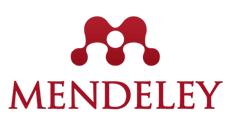WAKAF SEBAGAI SUMBER EKONOMI SYARIAH
Abstract
Keywords
Full Text:
PDFReferences
Assifa, F. (2022). Wapres Sebut Potensi Wakaf Nasional Rp 180 Triliun, Ketua MPR: Bisa Bantu Entaskan Kemiskinan. Kompas.Com. https://regional.kompas.com/read/2022/10/08/085259978/wapres-sebut-potensi-wakaf-nasional-rp-180-triliun-ketua-mpr-bisa-bantu
Azrak, T. (2022). The Roles of Cash Waqf in Improving the Economic Welfare: Case Study of Turkey. The Journal of Management Theory and Practice (JMTP), 3(1), 42–47. https://doi.org/10.37231/jmtp.2022.3.1.200
Dogarawa, A. B. (2022). THE IMPORTANCE OF ZAKAH AND WAQF IN POVERTY ALLEVIATION , JOB THE IMPORTANCE OF ZAKAH AND WAQF IN POVERTY ALLEVIATION , JOB CREATION AND TACKLING INSECURITY. Department of Accounting, Ahmadu Bello University, Zaria, June, 1–18.
Haneef, M. A. (2018). Waqf as a socio-economic institution. Journal of King Abdulaziz University, Islamic Economics, 31(2), 71–78. https://doi.org/10.4197/Islec.31-2.5
Hidayat, S., & Makhrus, M. (2021). Peranan Bank Wakaf Mikro dalam Pemberdayaan Ekonomi Masyarakat di Purwokerto. Jurnal Ilmiah Ekonomi Islam, 7(2), 577–586. https://doi.org/10.29040/jiei.v7i2.2249
Lamido, A. A., & Haneef, M. A. (2021). Shifting the paradigms in waqf economics: towards renewed focus on socioeconomic development. Islamic Economic Studies, 29(1), 18–32. https://doi.org/10.1108/ies-04-2021-0014
Lubis, H. (2020). Potensi Dan Kendala Pengembangan Wakaf Uang Di Indonesia. ISLAMIC BUSINESS and FINANCE, 1(1), 43–59. https://doi.org/10.24014/ibf.v1i1.9373
Nur, A. M., & Bin-Nashwan, S. A. (2022). The potential of cash waqf for poverty alleviation in Somalia. In Islamic Finance in Africa (pp. 222–234). Edward Elgar Publishing.
Ridwan, M. (2018). Wakaf Dan Pembangunan Ekonomi. ZISWAF : Jurnal Zakat Dan Wakaf, 4(1), 105–124. https://doi.org/10.21043/ziswaf.v4i1.3034
Safitri, & Abidin, M. Z. (2022). Optimalisasi Wakaf Uang Produktif Di Indonesia. SYAR’IE: JURNAL PEMIKIRAN EKONOMI ISLAM, 5(2), 109–121.
Syakir, A. (2016). Pemberdayaan Ekonomi Umat Islam Indonesia Melalui Wakaf Produktif. Al-Intaj, 2(1), 37–48. https://ejournal.iainbengkulu.ac.id/index.php/Al-Intaj/article/view/1107
Zainal, V. R. (2016). Pengelolaan Dan Pengembangan Wakaf Produktif. Ziswaf, 9(1), 1–16.
Refbacks
- There are currently no refbacks.

This work is licensed under a Creative Commons Attribution-NonCommercial 4.0 International License.
_______________________________________________________________________________________________
Journal of Management Review indexed by:
_______________________________________________________________________________________________
_______________________________________________________________________________________________








